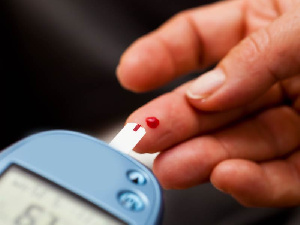This condition can have severe implications for one’s health, but with proper management, individuals with diabetes can lead fulfilling lives.
Causes of Diabetes
The causes of diabetes are multifactorial and can vary depending on the type of diabetes. The two main types of diabetes are:
Type 1 Diabetes: This form of diabetes is an autoimmune disorder in which the body’s immune system mistakenly attacks and destroys the insulin-producing beta cells in the pancreas. As a result, people with type 1 diabetes produce little to no insulin, and their bodies cannot efficiently convert glucose into energy.
Type 2 Diabetes: Type 2 diabetes is characterized by insulin resistance, wherein the body’s cells fail to respond adequately to insulin. Initially, the pancreas tries to compensate by producing more insulin, but over time, it may not be able to keep up with the demand, leading to elevated blood sugar levels. It’s the most common type—about 90% to 95% of people living with diabetes have type 2.
Apart from these primary types, Gestational diabetes is also a type of diabetes characterized by high blood sugar levels that develop during pregnancy and results from insulin-blocking hormones produced by the placenta.
Additionally, certain genetic and environmental factors, such as family history, obesity, sedentary lifestyle, and unhealthy eating habits, can increase the risk of developing type 2 diabetes.
Symptoms of Diabetes
Common symptoms include: Frequent urination, Excessive thirst, Unexplained weight loss, Increased hunger, Fatigue and irritability, Blurry vision, Slow-healing wounds or frequent infections
Note: It is crucial to recognize these signs and seek medical attention promptly, as untreated diabetes can lead to serious complications like cardiovascular disease, kidney problems, nerve damage, and vision loss.
Management of Diabetes
While diabetes is a lifelong condition, its impact on a person’s life can be significantly reduced through appropriate management. Here are key aspects of diabetes management:
• Blood sugar monitoring: Regular monitoring is crucial to track glucose levels and adjust treatment plans accordingly.
• Healthy eating: A well-balanced diet rich in fruits, vegetables, whole grains, and lean proteins can help manage blood sugar levels while limiting the intake of sugary and processed foods.
• Physical activity: Regular exercise enhances insulin sensitivity, aiding in better blood glucose control and weight management.
• Medications: For individuals with type 1 diabetes or advanced type 2 diabetes, insulin injections or oral medications may be prescribed to regulate blood sugar levels effectively.
Prevention:
• Adopt a healthy lifestyle
• Weight management
• Regular health check-ups
 Home Of Ghana News Ghana News, Entertainment And More
Home Of Ghana News Ghana News, Entertainment And More





